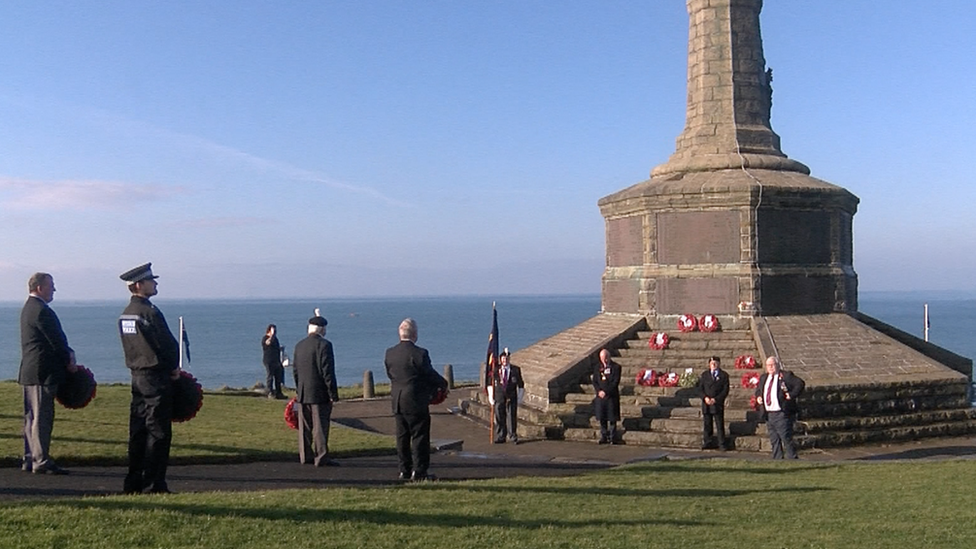Covid: Socially distanced Armistice takes place in Wales
- Published
With large events prohibited by Covid regulations, low-key services have taken place to mark Armistice
Low-key services have taken place to mark Armistice due to Covid-19 regulations prohibiting large events.
People were encouraged to stay at home for the 102nd Armistice Day since World War One, which commemorated those who died in conflict.
Every year a two-minute silence is held on the 11th hour of the 11th day of the 11th month.
Instead of gathering, people were urged to mark the silence at home or gaze at stars to remember the fallen.
First Minister Mark Drakeford asked people to mark the day in line with Wales' new nationwide Covid-19 restrictions.
Allow X content?
This article contains content provided by X. We ask for your permission before anything is loaded, as they may be using cookies and other technologies. You may want to read X’s cookie policy, external and privacy policy, external before accepting. To view this content choose ‘accept and continue’.

He, alongside cabinet members and staff from the Wales Office in Cathays Park and the Welsh Parliament in Cardiff Bay, paused at 11:00 GMT.
'Give a nod'
Paul Yates from Cardiff, a veteran of the Royal Artillery, has not been able to gather with his old comrades and fellow veterans.
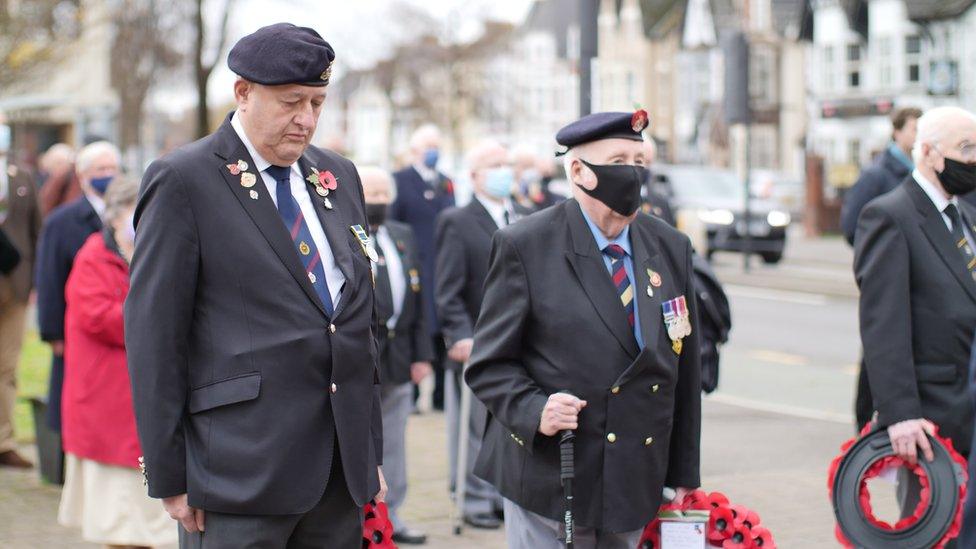
Veterans gathered in Newport
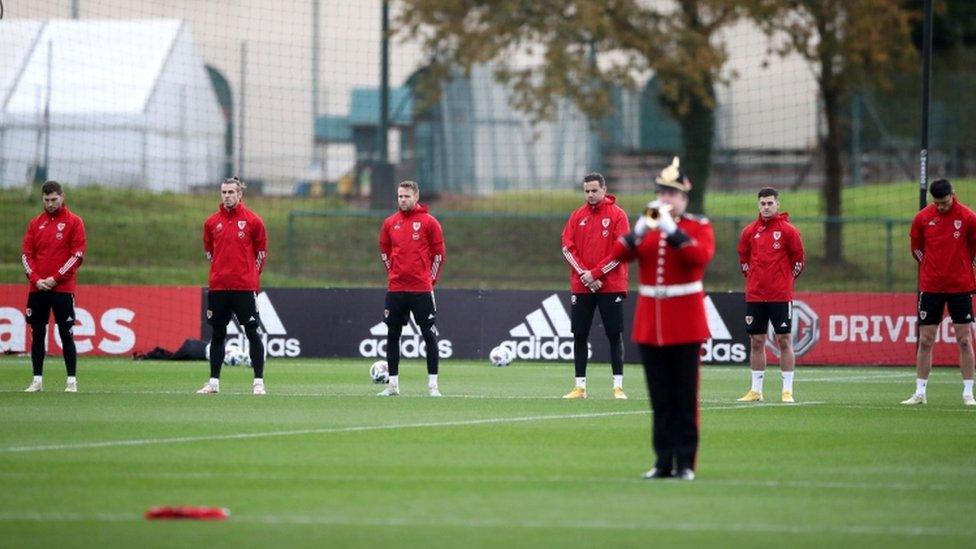
Wales footballers took part in the silence during training on Wednesday
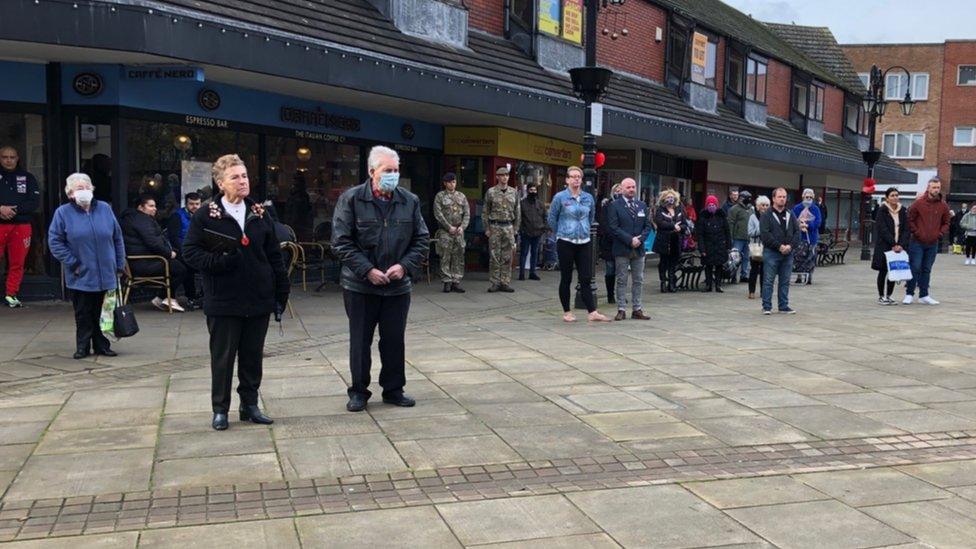
People paid their respects in Wrexham town centre
"I'll make sure I get out for a walk and a think, I'll wear my beret," he said.
"I think if guys wear their medals, just be seen in the community that you are a veteran, that you are marking that day and that we're there for each other by wearing your medals, wearing your beret, we can give each other a nod, a bit of social distance respect, that's all guys want."
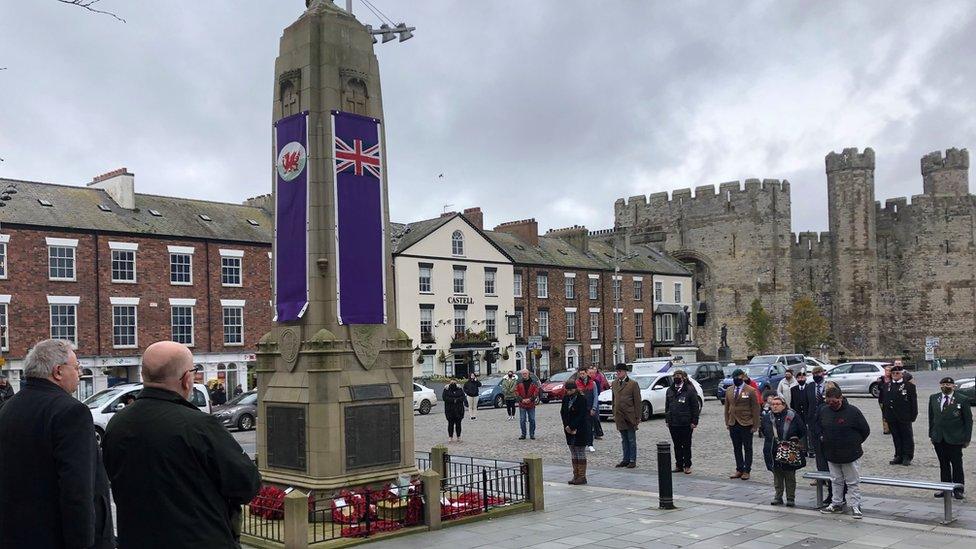
A small service was held in Caernarfon
'Really important'
Many supermarkets and newly reopened non-essential shops also observed the silence.
On Remembrance Sunday, staff and customers at Morrisons supermarket in Cardiff Bay paused to remember the fallen at 11:00 GMT and also planned to do so again on Wednesday .
Store champion Shannon Goodwin said: "The customers are always really respectful, they always stop what they're doing, they always respect the silence and then carry on afterwards and they respect that we as staff take part in the a two minute silence.
"It's really important to us."
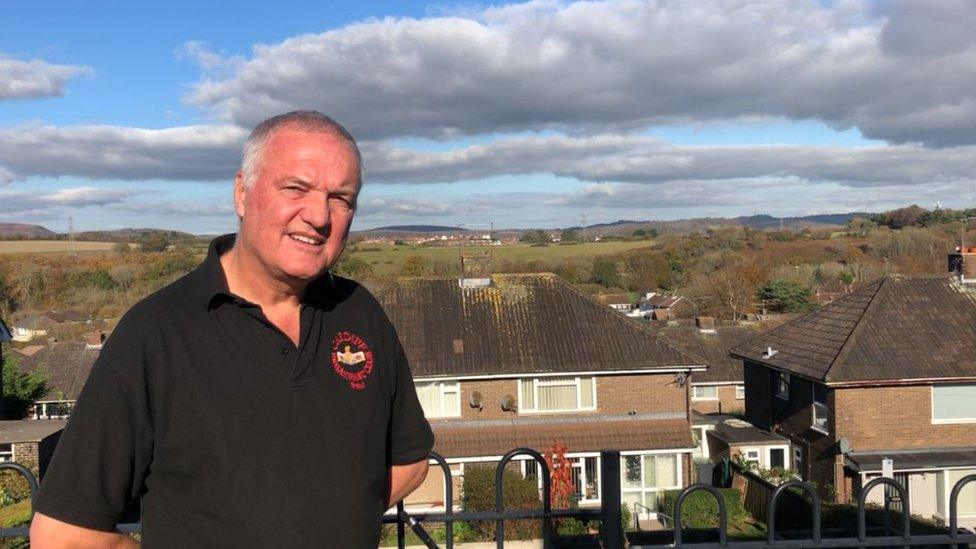
Veteran Paul Yates is not be able to gather with his old comrades and fellow veterans
'Look at the stars'
On Wednesday at 19:00, Cathays cemetery in Cardiff will beam searchlights that will be visible for miles from its Commonwealth war graves plot into the night sky.
It is one of four locations across the UK taking part in the Shine On campaign to remember the fallen.
Searchlights will also be beamed from the Commonwealth War Graves Commission's (CWGC) Plymouth Naval Memorial, the Brookwood Military Cemetery in Surrey and Edinburgh's Rosebank Cemetery.
Cathays cemetery is the final resting place of more than 700 Commonwealth and Allied servicemen and women of World War One and Two.
CWGC, which cares for the graves, is encouraging everyone to take a moment at 19:00 to look at the stars and remember those who have given their lives for their country.
'Names burn bright'
Director general Barry Murphy said: "For more than a century, we have gathered at the same time on the same day, to bow our heads and think of those who sacrificed their lives for ours, during the two world wars - but this year is different.
"Whilst we can't come together in person, we can still make sure their names burn bright.
"Not just for one day, but for all the days and nights to come.
"So, this year, on Remembrance Day, we'll look up to the stars in our night sky to remember those who fell. All 1.7 million of them."
The Armistice was the ceasefire that ended hostilities between the Allies and Germany on the 11 November 1918.
It did not end World War One itself, but it was the agreement that stopped the fighting on the Western Front while the terms of the permanent peace were discussed.
- Published8 November 2020
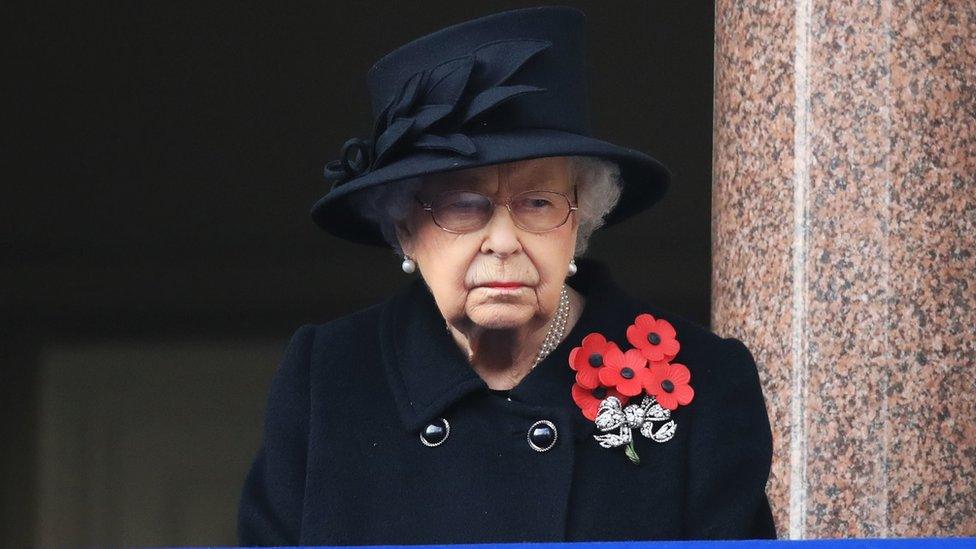
- Published11 November 2019
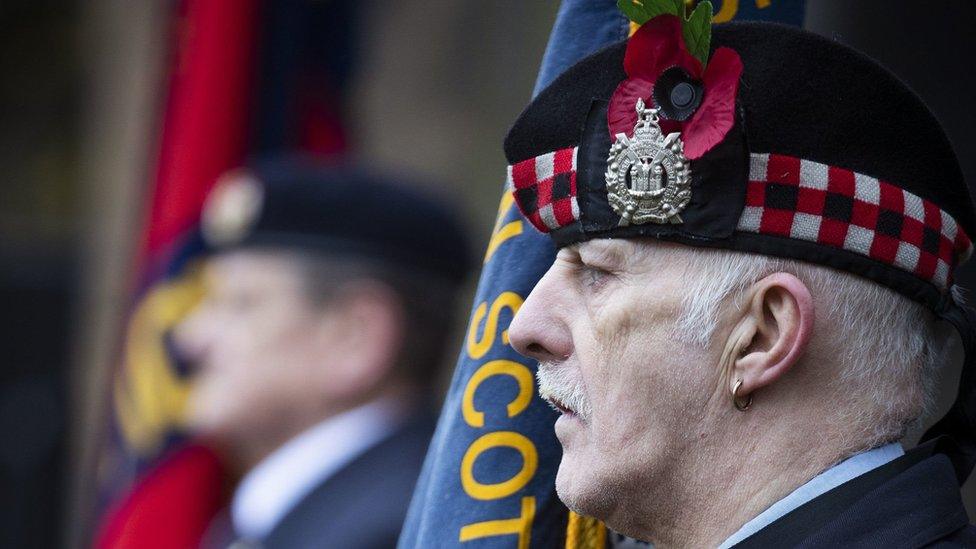
- Published8 November 2020
